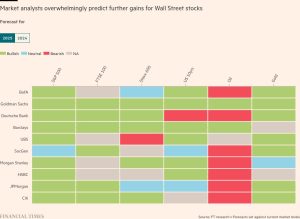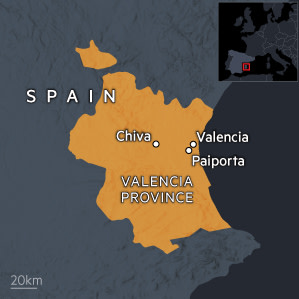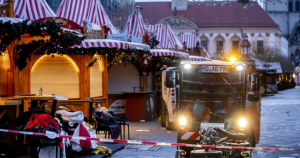Germany headed for early elections after Olaf Scholz loses confidence vote
Stay informed with free updates
Simply sign up to the German politics myFT Digest — delivered directly to your inbox.
Germany is heading for early elections after Chancellor Olaf Scholz lost a vote of confidence, ending his fractious coalition government at a time of strain for the Eurozone’s largest economy.
Scholz’s defeat by 207 to 394 votes on Monday paves the way for the dissolution of parliament ahead of the early elections pencilled in for February 23.
In pre-election polling, the chancellor and his centre-left Social Democrats are behind both the opposition CDU and the far-right Alternative for Germany (AfD).
“It is a project that has failed,” said Andrea Römmele, professor of communication in politics at the Hertie School in Berlin, referring to the collapse of what she described as Scholz’s “courageous” three-party coalition, the first in Germany’s post-war history.
Scholz’s widely anticipated defeat in the Bundestag confidence vote sends Germany to the polls amid a darkening economic outlook, the threat of a trade war with the US and political turmoil elsewhere in Europe.
The Bundesbank warned last week that Europe’s largest economy would grow just 0.1 per cent in 2025.
“You’re leaving the country in one of its biggest economic crisis in postwar history,” said Friedrich Merz, the CDU party chief leading in the polls, in comments targeting Scholz ahead of Monday’s vote. “And you’re standing here and saying . . . let’s increase debt at the expense of the younger generation.”
Scholz proposes increasing the minimum wage, cutting value added tax on food and investing more in the country’s ageing infrastructure. He said the question now facing the electorate was “if and how we invest in our country”.
Immigration and the debate over military support for Ukraine are also divisive issues in an election in which the AfD and other populist parties hope to make big gains.
Surveys suggest the CDU may have to team up with the SPD or the Greens to reach a parliamentary majority.
The SPD and their coalition partners, the Greens, lost their majority in the current parliament last month when Scholz sacked his finance minister, the liberal FDP party chief Christian Lindner.
The collapse of the so-called traffic-light coalition followed months of quarrelling over the budget and funding the country’s huge investment needs, defence and social spending.
“We were all fed up with each other,” said Robert Habeck, the Green party candidate and economy minister in Scholz’s government, on Monday.
France has also been contending with political turbulence, with the defeat of Michel Barnier’s government in a vote of confidence this month.
Other European governments are also preparing for the return as US president of Donald Trump, who has threatened to impose universal tariffs of up to 20 per cent on imports and called for a brokered deal to end the war in Ukraine.
Scholz’s government, which took office in December 2021, had vowed to usher in a green industrial revolution for the Eurozone country.
But the plans were derailed when Russia invaded Ukraine three months later, forcing Berlin to reverse decades of reliance on Russian gas and overturn its defence and foreign policy.
Scholz dubbed the challenge a “Zeitenwende”, or turning point in history, allocating €100bn to modernise the military and supplying weapons to Ukraine.
“One major mistake was that after Russian’s invasion of Ukraine, Scholz did not go back and renegotiate a new coalition agreement,” Römmele said. “After 2022 everything was upside down.”
Scholz suffered one of his biggest setbacks when the country’s constitutional court invalidated the coalition’s budget in November 2023. The court ruled that it violated a constitutional provision that limits new public borrowing to 0.35 per cent of GDP a year.
The decision led to a €60bn hole in the country’s public finances and to more feuding between the fiscally conservative FDP and its coalition partners in the SPD and the Greens.
“We need radical change now,” said Guntram Wolff of Bruegel, a think-tank. “The business model is just going to have to be a different one. It’s no longer going to be based on cheap Russian gas, the US for security and China for exports. This time is over.”
#Germany #headed #early #elections #Olaf #Scholz #loses #confidence #vote






